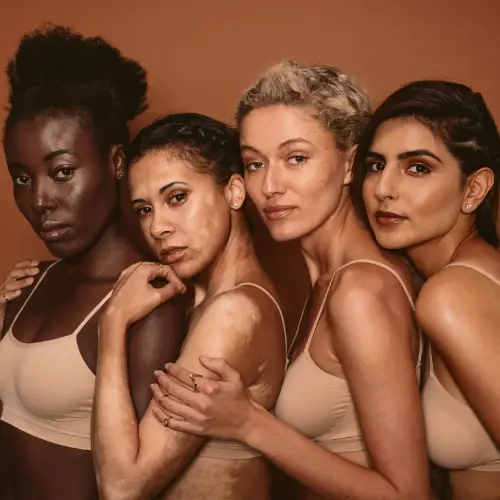In a world that increasingly values appearances, the concept of “pretty privilege” has become a topic that demands our attention. Pretty privilege refers to the societal advantages that individuals deemed attractive enjoy, often at the expense of those who don’t conform to conventional beauty standards. It’s a subtle yet pervasive force that affects various aspects of our lives, from personal relationships to professional opportunities. In this article, we’ll delve into the reality of pretty privilege, exploring its manifestations and the urgency for an open dialogue around this issue.
The Power of Perception
Beauty has long been considered subjective, but societal norms have a way of shaping our perceptions. Research consistently shows that attractive individuals are often perceived as more competent, trustworthy, and socially adept. This bias is present in various settings, including the workplace, where studies have demonstrated that good-looking individuals tend to receive preferential treatment in hiring and promotions.
The Halo Effect

The “halo effect” is a psychological phenomenon that plays a significant role in perpetuating pretty privilege. This cognitive bias occurs when our positive perception of one trait influences our overall judgment of a person. In the context of pretty privilege, someone perceived as physically attractive may have their other qualities, such as intelligence or kindness, exaggerated in our minds. This can lead to a cycle of favorable treatment based on initial impressions.
Social and Personal Relationships
Pretty privilege isn’t limited to professional settings; it also impacts personal relationships. Individuals deemed attractive may find it easier to make friends, attract romantic partners, and navigate social situations. This can create a divide between those blessed with conventional beauty and those who don’t fit these standards, potentially leading to feelings of inadequacy and exclusion.
Media Influence
The media plays a pivotal role in shaping societal beauty standards. Advertisements, movies, and social media platforms often showcase a narrow definition of beauty, setting unrealistic expectations. This constant bombardment of idealized images can contribute to the perpetuation of pretty privilege, as individuals who align with these standards are more likely to be perceived as successful and happy.
Breaking the Silence

While the existence of pretty privilege is undeniable, acknowledging and discussing it openly remains a challenge. Society tends to shy away from conversations about appearance-based advantages, perhaps because it forces us to confront our own biases. However, breaking the silence is essential for fostering a more inclusive and equitable world.
Encouraging Self-Reflection
Individuals who benefit from pretty privilege may not even be aware of the advantages they receive. Encouraging self-reflection can be a powerful tool in promoting empathy and understanding. By recognizing the influence of attractiveness on various aspects of life, individuals can work towards dismantling preconceived notions and treating others with fairness.
Promoting Diverse Beauty Standards

Championing diverse beauty standards is crucial for challenging the status quo. Embracing a variety of appearances in media, advertising, and popular culture can help break down the narrow definition of beauty that currently dominates our perceptions. This shift requires the active involvement of industries and individuals alike in promoting inclusivity.
Pretty privilege is a complex and pervasive aspect of our society that warrants discussion and reflection. By acknowledging its existence and understanding its impact, we can work towards creating a more inclusive and equitable world. It’s time to challenge the superficial judgments ingrained in our culture and recognize the inherent worth of every individual, irrespective of their appearance. Only through open conversation and collective effort can we hope to break free from the constraints of pretty privilege and build a more just and compassionate society.
You May Like: Why Celebrity Marriages Fail? 10 Most Iconic Hollywood Dresses
